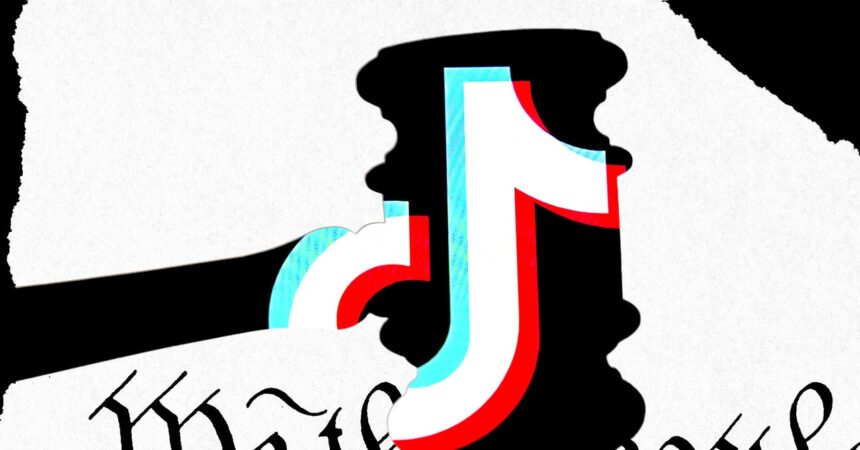The Battle Over TikTok: A Rollercoaster Ride Through Legal Challenges and National Security Concerns
In recent months, TikTok has found itself at the epicenter of a heated debate involving national security, free speech, and the power of digital platforms. Following President Biden’s signing of a bill to ban TikTok in April 2023, the company and its users initiated legal action against the federal government, asserting violations of their First Amendment rights. This case highlights the ongoing tension between security concerns and personal freedoms in the digital age.
The Legal Saga
Following the implementation of the ban, TikTok sought relief through lawsuits, claiming the federal government’s actions infringed on their constitutional rights. The legal landscape shifted significantly in December 2023 when a federal appeals court upheld the law, leaving TikTok with one remaining recourse: an appeal to the Supreme Court.
As arguments unfolded in a recent Supreme Court hearing, it became clear that justices were divided on the potential implications of the ban. Justice Brett Kavanaugh described the government’s rationale for data security as "strong," while Justices Elena Kagan and Neil Gorsuch questioned the validity of claims surrounding possible "covert" Chinese manipulation, suggesting that similar concerns could apply to other social media platforms.
Fisher, representing TikTok’s creators, argued that national security matters would be better addressed through comprehensive data privacy legislation rather than by prohibiting an individual platform. He contended that the question at hand was narrower: could the law be sustained on security grounds? According to Fisher, the answer was unequivocally no.
The Tension Between Freedom of Expression and National Security
As the justices deliberated, some voiced skepticism about whether the law truly limited TikTok’s freedom of expression, particularly given the potential for TikTok to continue operating through a separate entity, free from its parent company ByteDance. Justice Ketanji Brown Jackson pointed out that divestment might allow the app to maintain its presence in the market under different governance.
However, should the ban take effect, the implications for TikTok could be severe. Major tech companies like Apple and Google would be compelled to remove TikTok from their app stores, which not only would halt new downloads but also pose challenges for existing users in terms of app updates and functionality. TikTok’s legal representation indicated that the app could "go dark" as soon as January 19 if the Supreme Court fails to intervene.
Expert Opinions and Future Predictions
Legal experts are weighing in on the potential outcomes. Blake Reid, a tech law professor, observed that the justices seemed primarily focused on TikTok’s corporate structure, potentially limiting the company’s opportunity to delve into deeper arguments regarding privacy and security flaws in the government’s position.
On the other hand, Alan Rozenshtein, a law professor and former national security adviser, noted that the government’s security concerns might sway some justices, particularly Justices Sotomayor, Gorsuch, and possibly Kagan. Nevertheless, he expressed doubt that TikTok would garner the necessary five votes to successfully overturn the law.
In the aftermath of the hearing, TikTok’s lead attorney, Francisco, suggested that the justices might issue a stay or injunction to prevent the ban from proceeding, although no clear signals were given.
Political Pressure and Potential Solutions
Notably, former President Trump has entered the fray, submitting an amicus brief to the Supreme Court urging it to halt the ban. Trump claims that he possesses the unique capability to negotiate a resolution that addresses national security concerns while preserving TikTok’s operation in the U.S. This political angle adds a complex dimension to the legal battle, suggesting that TikTok’s fate may hinge not only on judicial decisions but also on shifting political powers.
Conclusion: A Crossroads for TikTok
As the Supreme Court deliberates, the broader implications of this case become increasingly clear. The challenge TikTok poses is not just about the app itself but also reflects the ongoing conversations about privacy, data security, corporate governance, and free speech in our digitally connected world. With national security debates intensifying and political maneuvers at play, the coming weeks will be critical for the future of TikTok in the United States—potentially paving the way for far-reaching changes in how digital platforms are regulated in an era increasingly defined by technology and globalization.










